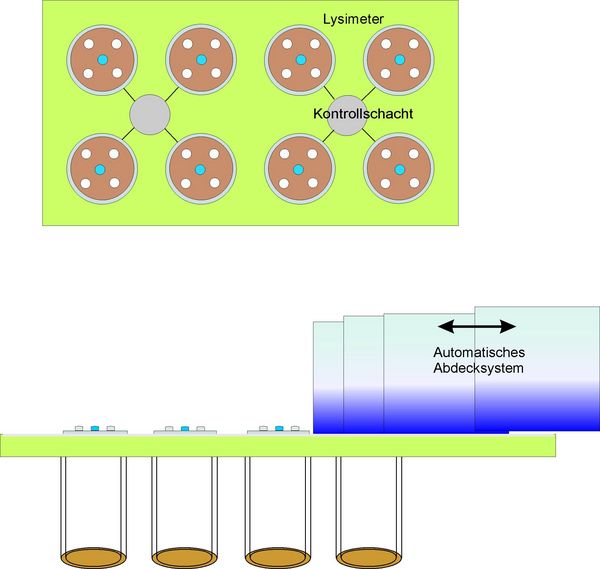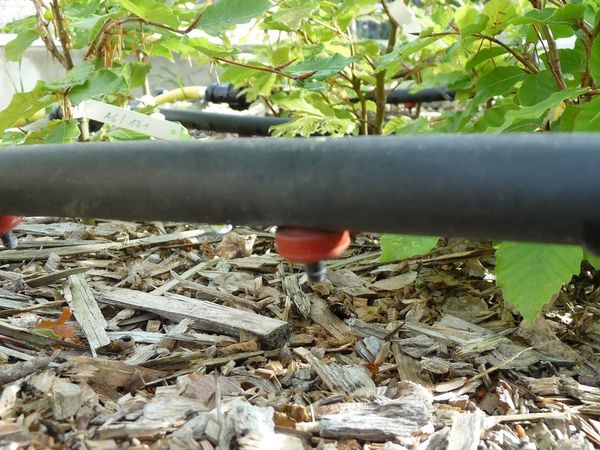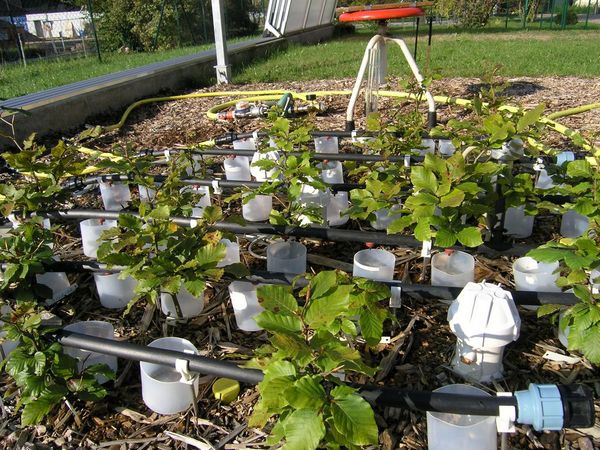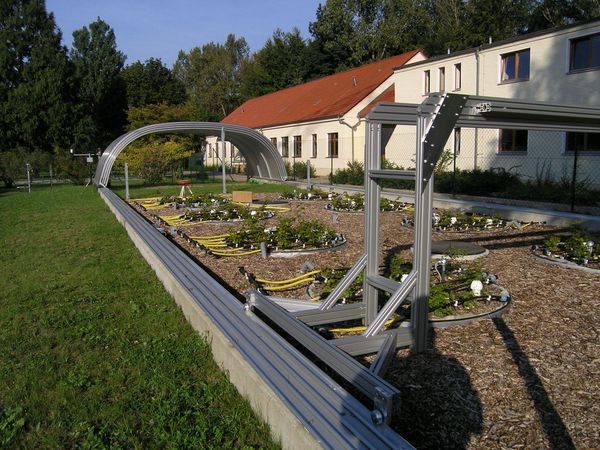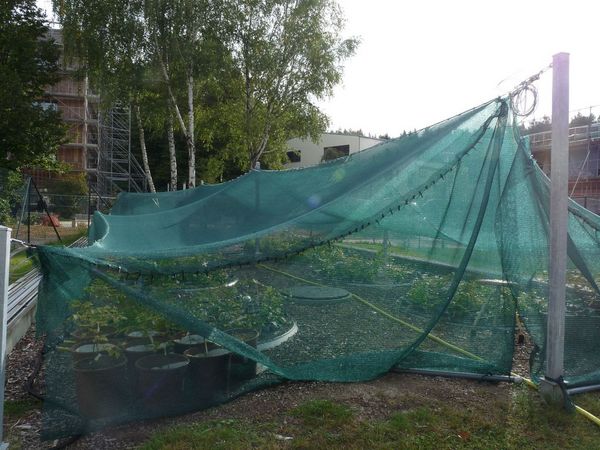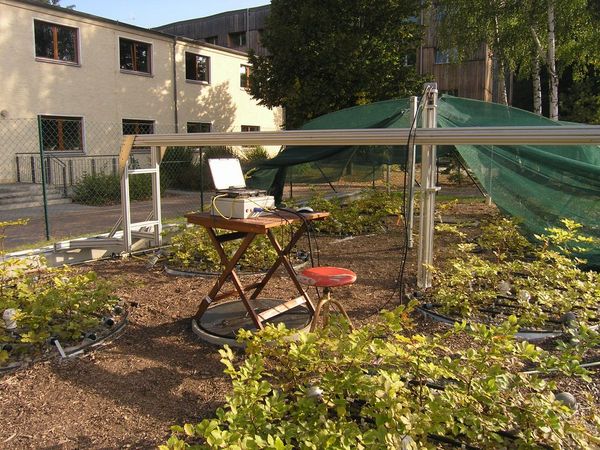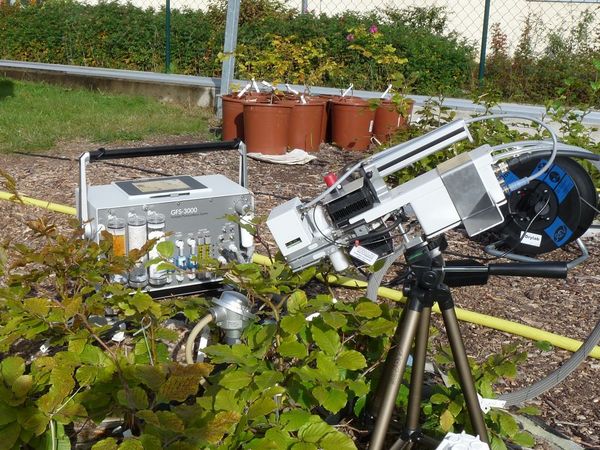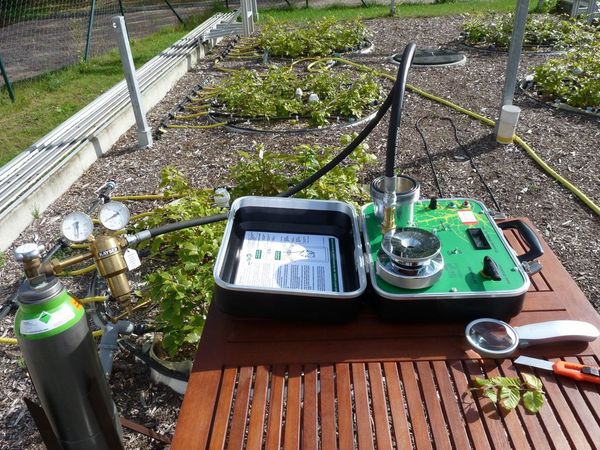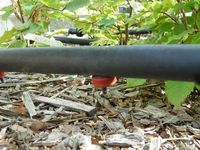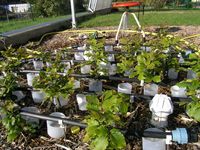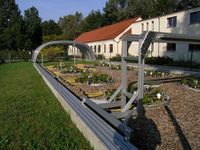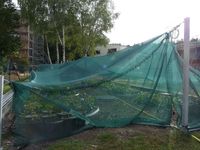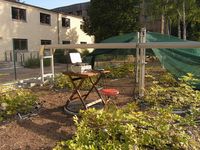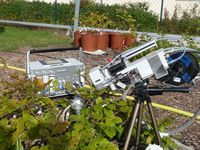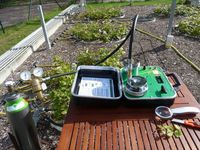Field-Dry Laboratory
The Field-Dry Laboratory ("Drylab") is an experimental laboratory that can be used to study how young forest trees react to drought under field conditions. This allows us to simulate an important effect of climate change - increasing summer drought.
The Drylab is a system of eight soil columns, each with a surface area of two square meters, which are filled with soil substrate and embedded at ground level in the open ground, isolated from the surrounding soil. Several young trees can be planted in each soil column. A sliding, translucent roof can be used to create controlled drought conditions. There is a lot of high-tech hidden under the soil: moisture sensors measure the water content in the soil at numerous points. Special cameras move up and down in 8 tubes per lysimeter to make root growth visible. We hope that this in particular will lead to a real increase in knowledge, as the reaction of fine roots to drought has been little researched to date.
For the first test run, the Drylab was stocked with young copper beeches from Germany and Poland, which are adapted to different climatic conditions. The European beech is the most important tree species in near-natural forests in Germany and plays a central role in future forest management. The trial was used to investigate which beech origin is better able to cope with the climatic conditions of the future. Young trees are particularly significant, as they grow the fastest, but are also the most sensitive with their shallow root system. The parameters investigated, such as fine root length, fine root surface area, root index and branching index, prove that the Polish origin is more drought-adapted.
In the immediate vicinity of the Drylab, a modern climate station of the weather service provider Meteomedia (Eberswalde station) is operated in cooperation with the University for Sustainable Development, which provides important reference values for the drought simulations.
The facility can be used to make realistic statements about the future threat to today's forests and to develop strategies for adapting to the expected climate changes. The results are of central interest for the German forestry industry and for forestry policy decisions by the Federal Ministry of Food and Agriculture (BMEL), to whose department the Thünen Institute belongs.
Contact

- Phone
- +49 3334 3820 339
- tanja.sanders@thuenen.de
Head of Ecology and Forest Dynamics, Contact person Intensive Forest Monitoring

![[Translate to English:] [Translate to English:]](/media/_processed_/9/2/csm_Allgemein_Thueringen_Hainich_Mischwald_Bolte_2__19d9dab56a.jpg)
![[Translate to English:] [Translate to English:]](/media/_processed_/d/2/csm_100_0001_0013_c05c63e7db.jpg)
